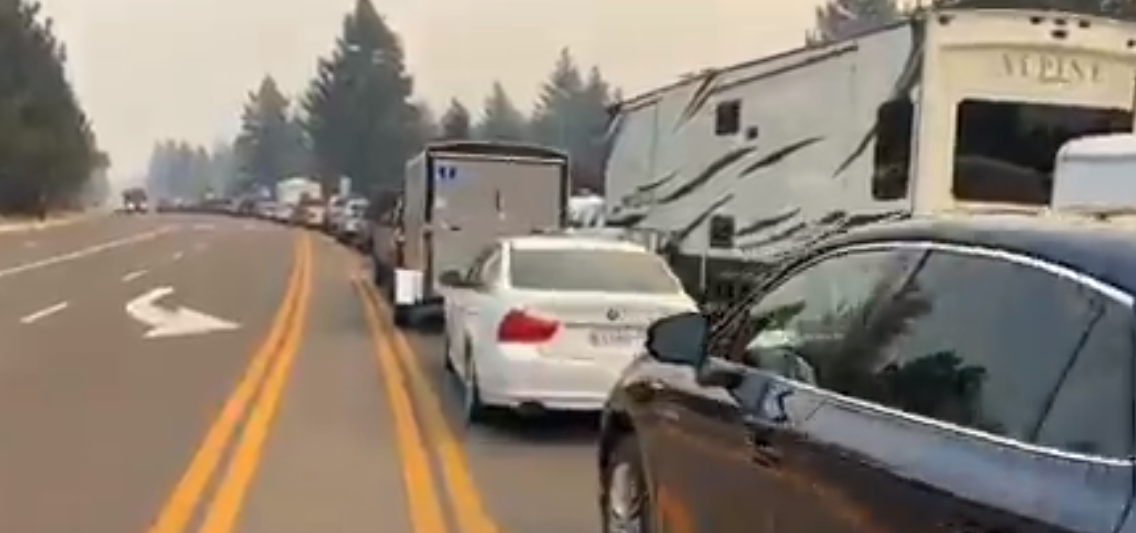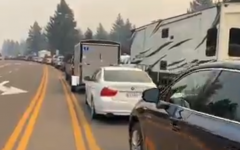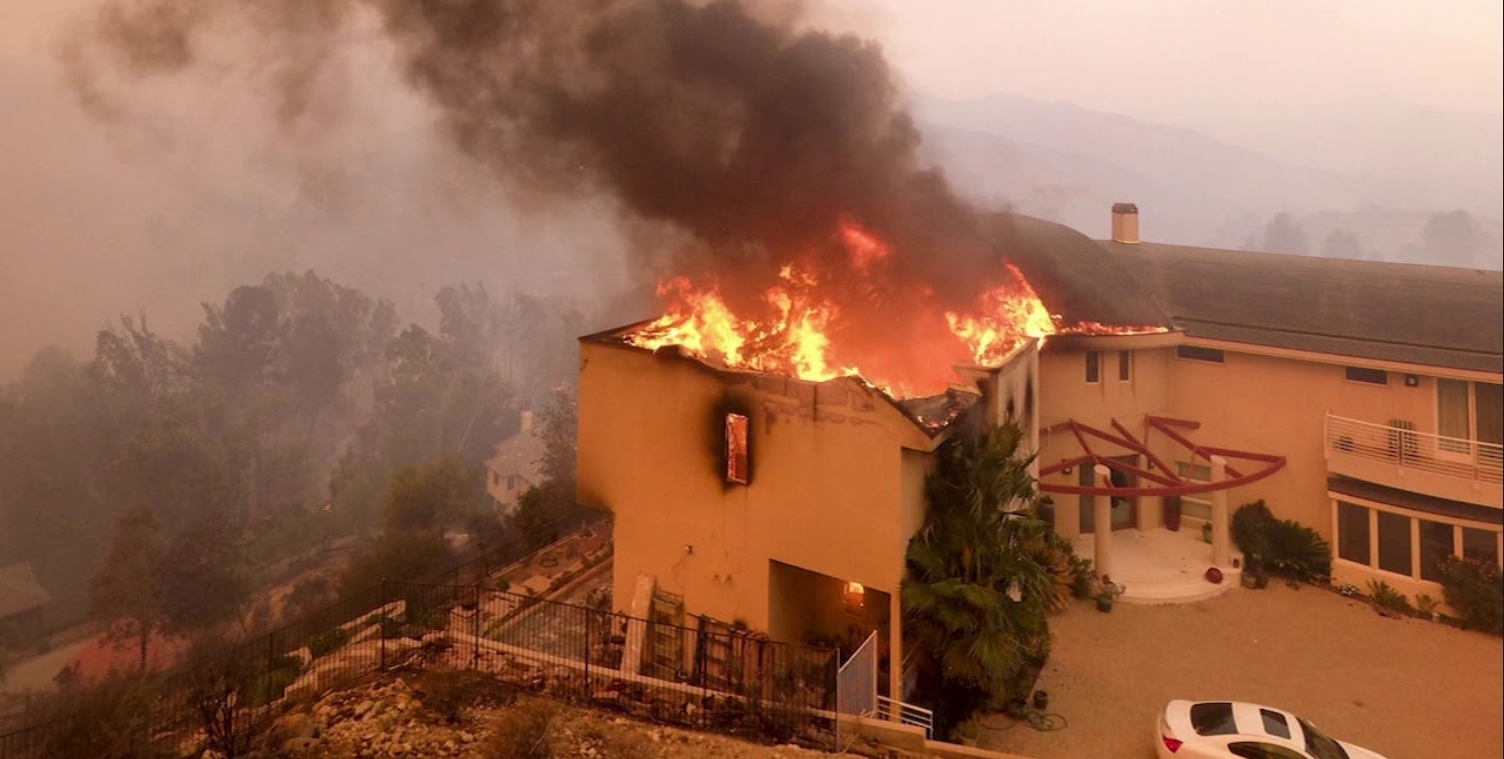
Traffic backup from the Caldor Fire (Photo screenshot: ABC YouTube)
Officials Release Fire Evacuation Plan for Lake Tahoe
Critics of the plan note that it does not provide a traffic control and safety plan in the event of an emergency unplanned ‘no-notice’ evacuation
By Megan Barth, September 19, 2024 2:11 pm
Lake Tahoe Fire Chiefs, Lake Tahoe Law Enforcement Agencies and Emergency Management Personnel have devised and released the Lake Tahoe Regional Evacuation Plan (see below) which is applicable to five general evacuation areas of the entire basin.
South Lake Tahoe/Myers, North Lake Tahoe, Tahoe Douglas, Incline Village, and West Lake Tahoe are the five general evacuation areas and include Nevada County, Placer County, El Dorado County, Alpine County, Douglas County, Carson City, and Washoe County.

The plan was developed in response to the Caldor Fire and is a “living document,” relying on regional cooperation and collaboration for events related to wildfires, extreme weather, and terrorism.
The plan also relies on multiple agencies to coordinate and implement information for an “organized, phased and supervised” evacuation.
Yet, critics of the plan note that it does not provide a traffic control and safety plan in the event of an emergency unplanned “no-notice” evacuation.
One such critic, Doug Flaherty, a retired Fire Combat Battalion Chief and President of CleanTahoeAir.org, notes in a letter (see below):
The important and necessary “regional evacuation” strategy implementation document emphasizes a “planned” phased evacuation. It does not however, address (except for brief mentions in one or two county annex Sections) a “no-notice” unplanned evacuation.
No-notice evacuations are sudden fast-moving events that can almost immediately overwhelm agency resources.
Further, the regional plan does not contain an analyses of traffic impacts and evacuation times under a variety of scenarios. These, as suggested by the CA Attorney General, are best practices for wildfire evacuation planning for projects within very high fire hazard severity zones.”
Due to the years of development, tourism, and growth in the region, not supported by a corresponding and updated evacuation plan, Flaherty’s organization released an A.I. generated evacuation analyses for the region last month.
Per our report:
The release of the Placer and Washoe Tahoe North Shore analyses is part of a larger basin-wide evacuation analysis commissioned by TahoeCleanAir.org, and follows many years of TRPA refusal to conduct required roadway-by-roadway capacity studies (EIR/EIS) to assess impacts of new projects on evacuation capacity for overburdened Lake Tahoe roadways and infrastructure.
Despite the Tahoe Regional Planning Agency’s (TRPA) official estimation of less than four hours to evacuate fire threatened zones around the basin, the new and far more granular analyses show evacuation times of nine to 14 hours and more, depending on road closures and other variables around the Lake.
“Community members have become frustrated with TRPA and local agencies over the last three years, while realizing that the Tahoe Basin is over capacity,” says Flaherty, who paid $100,000 for the simulation with hopes to recoup his investment through donations to his non-profit
“Yet agencies continue to pursue land, project approvals and policies that bring more and more people into the Tahoe basin, with seemingly little concern to provide a publicly transparent data- driven analysis indicating how long it will take to get them out of the area in case of a wildfire evacuation emergency. From a life safety standpoint, this is dangerous, irresponsible and not sustainable.”
Flaherty’s evacuation study was met with criticism from TRPA’s Executive Director Julie Regan who publicly charged that the study did not use “current fire experts” and Tahoe Fund CEO Amy Berry referred to the study as “irresponsible.” Flaherty fired back, accusing them of manipulation, obfuscation, and gaslighting.
Officials are offering a 60-day comment period that ends on Nov. 20. You can submit comments by emailing fireinfo@cityofslt.us.
laketahoeregionalevacuationplan Corrected TahoeCleanAir.org - Comments Tahoe Regional Evac Plan - 9-18-24- Illegal Alien Identified As Wrong-Way Driver in Fatal Crash That Killed LVMPD Officer - December 23, 2024
- Senator Rosen Joins Letter Raising Concerns About Pete Hegseth’s Nomination - December 20, 2024
- NV SOS Launches Four Investigations Into 2024 Election Violations - December 20, 2024





